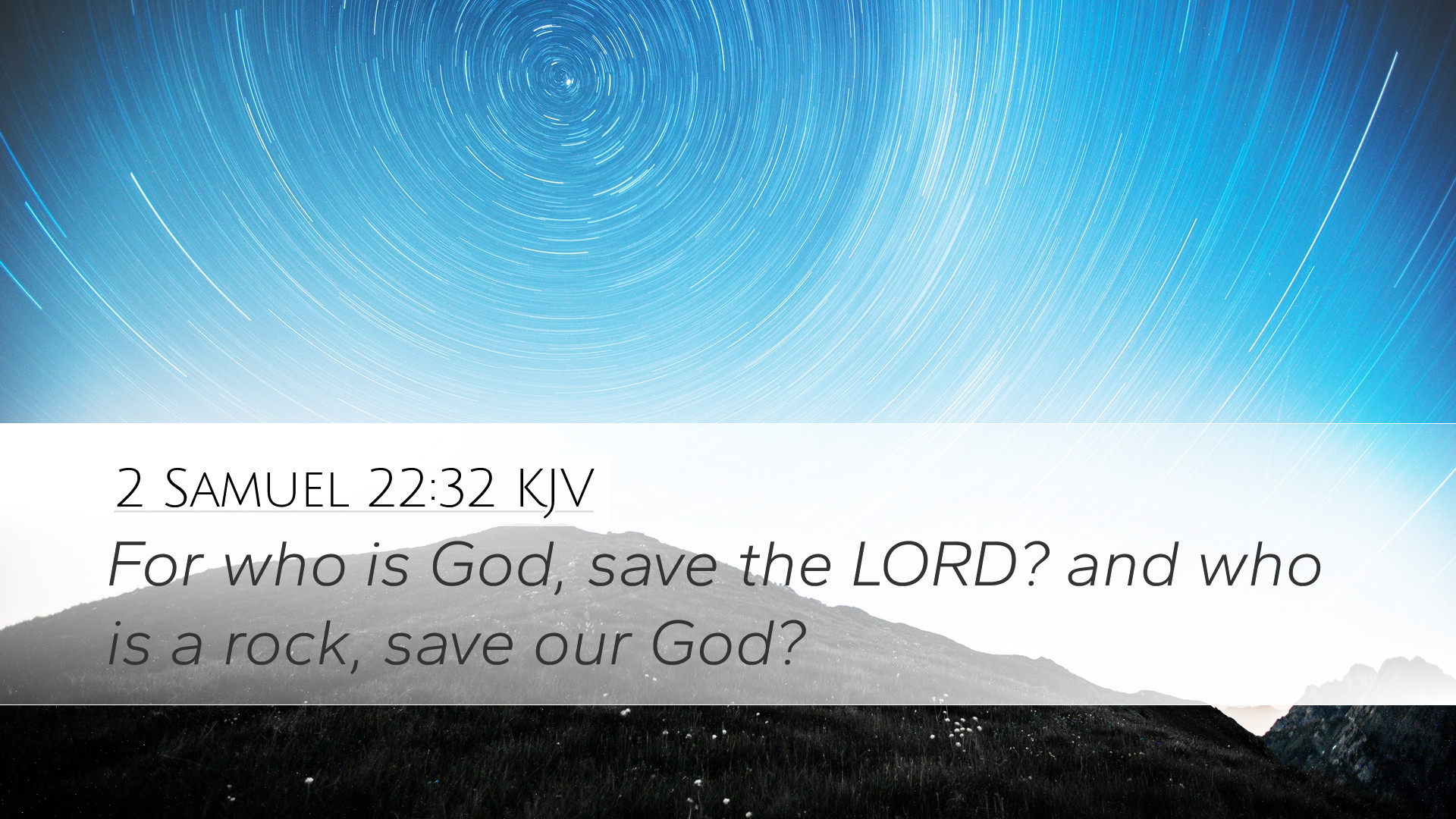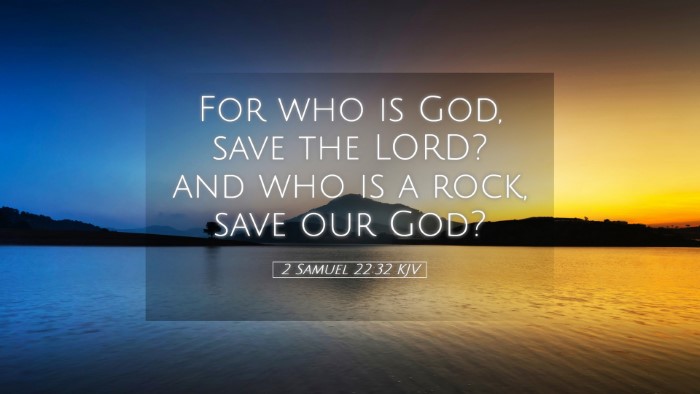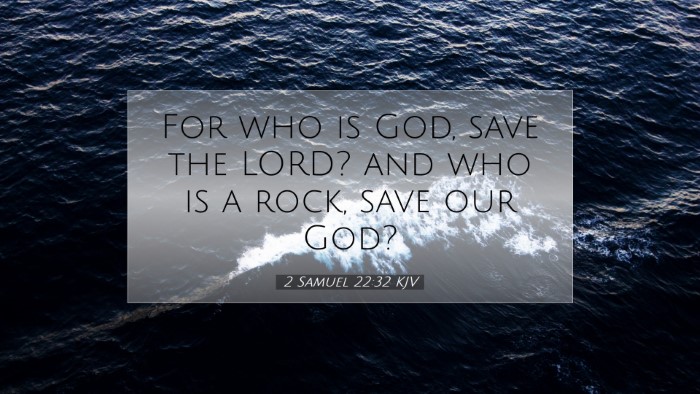Commentary on 2 Samuel 22:32
Verse: "For who is God, save the Lord? And who is a rock, save our God?" (2 Samuel 22:32, KJV)
This verse appears in a song of praise attributed to David, depicting his reliance on God as a deliverer and protector. This moment of reflection indicates the centrality of God's sovereignty and strength in David's life. The questions posed illuminate David’s understanding of God's unique position in his life and the broader narrative of Israel.
Exegetical Insights
The rhetorical questions rhetorically emphasize the exclusivity of God's nature and attributes. David acknowledges no other being compares to the Lord. This reveals a profound theological truth: the singularity of God as both savior and sustainer.
- God as Savior: Here, David recognizes God not just as a deity but as a personal savior who intervenes in human affairs.
- God as Rock: The imagery of God as a rock signifies stability, safety, and refuge, contrasting the instability of worldly powers.
- The Importance of Acknowledgment: David's recognition of God's sovereignty serves as a model for believers to attribute their victories and safety to God alone.
Insights from Public Domain Commentaries
Matthew Henry:
Matthew Henry emphasizes the certainty of God's character in this verse, elucidating that the question "Who is God, save the Lord?" affirms God's uniqueness among all beings. He notes that this profound questioning invites reflection on the profound relationship between God and man. Henry discusses how David's confidence in the Lord as the rock signifies unshakeable faith amid life's trials.
Albert Barnes:
Albert Barnes expands on the notion of God as a rock, relating it to God's faithfulness and unchanging nature. Barnes conveys that this metaphor signifies protection and strength, underlining that, in time of trouble, believers have an unyielding refuge in God. He points out that, for David, and for all faithful, God’s steadfastness is a reason for praise and trust, reinforcing that outside of Him, human efforts are futile.
Adam Clarke:
Adam Clarke interprets this verse as a declaration of the Lord’s supremacy and implies that all deliverance must come from God. Clarke observes that by questioning who is God except the Lord, David is implicitly rejecting all forms of idolatry. He presents the Lord's might as the foundation for David’s confidence in victory over enemies. Clarke's commentary highlights the personal experience of divine intervention, encouraging believers to turn towards God amidst adversity.
Theological Implications
This passage enriches the theological understanding of the nature of God in relation to humanity. The assertions put forth challenge the reader to reflect on their concept of God, how they perceive His role in their lives, and whether they recognize God’s action in their personal context.
- Monotheism and Divine Sovereignty: The questions imply a monotheistic stance that is crucial to understanding the God of Israel.
- The Nature of Faith: The verse encourages believers to develop a faith that declares God’s action and presence in their lives and discourages reliance on temporal security.
- Calling for Reflection: It serves as an invitation to evaluate one’s spiritual life and where their reliance lies—in God as the rock or in temporal means.
Application for Believers
As pastors, students, theologians, and scholars dive into this verse, the call is to embrace a holistic understanding of God’s protective nature and sovereignty. Believers are encouraged to personalize their faith, identifying God’s active role in their lives as a fortress and stronghold.
- Encouragement in Adversity: When facing challenges, recall that God stands as a rock and deliverer; trust in His timing and methods.
- Promoting Worship: Use this understanding to foster deeper worship experiences, focusing on God's attributes as described in the verse.
- Building Faith Community: Encourage fellow believers to join in the chorus of faith, declaring God’s reliability and uniqueness in all narratives of life.
Conclusion
In summation, 2 Samuel 22:32 is a profound declaration of faith and understanding of God’s nature. It serves as a reminder of the protective, saving, and stabilizing power of God in the lives of His people. Through the insights of Matthew Henry, Albert Barnes, and Adam Clarke, we glean a holistic view of this verse that inspires both reverence and application in the life of modern believers.


